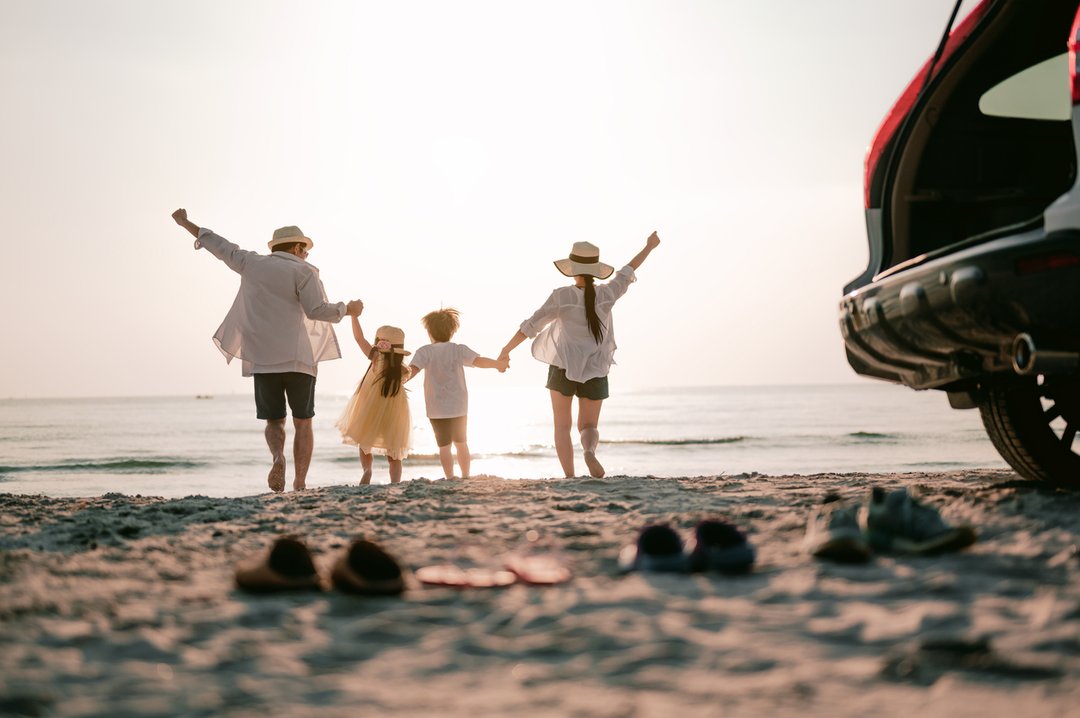
North American workers are notorious for being workaholics. Since March of 2020, an overwhelming majority of employees have shortened, postponed or canceled their vacation time, according to one survey. Another recent study found that 26% of respondents had never taken two weeks of vacation at one time. And The Center for Economic and Policy Research has gone so far as to call the U.S. the “No Vacation Nation.”
But leaving vacation time on the table is taking its toll on employees. A recent study by the World Health Organization (WHO) found that 745,000 people died in 2016 from heart disease and stroke due to long hours and said the trend might worsen due to the Covid-19 pandemic. The research found that working 55 hours or more a week was associated with a 35% higher risk of stroke and a 17% higher risk of dying from heart disease than a workweek of 35 to 40 hours.

iStock-1299265795.jpg
Taking vacation time is essential to employee survival. That’s because time off from work is integral to well-being, sustained productivity and high performance. Here are some additional reasons to start planning your next getaway.
Vacation time increases mindfulness
Going on holiday makes you feel more present and stimulated. “When we travel we are usually breaking our normal routine,” says Richard Davidson, professor of psychology and psychiatry at the University of Wisconsin–Madison and founder of the Center for Healthy Minds. That means we can’t operate on autopilot. “That decreased familiarity is an opportunity for most people to be more fully present, to really wake up,” he says. According to another research study in The Journal of Positive Psychology, meditation and vacations appear to have overlapping effects. The report found that both meditation exercises and vacationing were associated with higher levels of well-being and increased mindfulness.
Vacation time improves heart health
Taking regular vacations could help reduce the risk for metabolic syndrome—a cluster of health issues including high blood pressure, high blood sugar, excess belly fat and abnormal cholesterol levels. All of these symptoms raise the risk for heart disease, stroke and type 2 diabetes. In one study, researchers found that those who vacationed more frequently were less likely to meet the criteria for a diagnosis of metabolic syndrome. Notably, the risk went down by a quarter with each additional vacation taken. Another nine-year study followed more than 12,000 middle-aged men at high risk for heart disease. In the end, those who took more yearly vacations were less likely to die from any cause, including heart attacks and other cardiovascular problems.
Vacation time reduces stress
Stress raises levels of certain hormones, such as cortisol and adrenaline. In the short term, this can be helpful, triggering the “fight or flight” response that helps you deal with immediate threats. But over time, chronic stress can increase your risk for health issues, including heart disease. A study released by the American Psychological Association concluded that time off helps to reduce stress by removing people from the activities and environments that they associate with anxiety. Are you thinking of heading to the beach or going camping this summer? Another scientific report highlights that spending at least 120 minutes a week in natural environments (such as parks, woodlands and beaches) is associated with good health and well-being.
Vacation time boosts brainpower
Taking time off improves the capacity to learn. When your brain is completely relaxed, it consolidates knowledge and brainpower. “Neuroscience is so clear, through PET scans and MRIs, that the ‘aha’ moment comes when you’re in a relaxed state of mind,” says Brigid Schulte, author of Overwhelmed: Work, Love and Play When No One Has the Time. That’s why you have your best ideas on a walk, in the shower or on vacation. Adam Galinsky, professor and chair of the management division at Columbia Business School, has conducted numerous studies drawing a link between travel and creativity. “Foreign experiences increase both cognitive flexibility and depth and integrativeness of thought, the ability to make deep connections between disparate forms,” Galinsky stated. In one study, Galinsky found that creative directors of high-end fashion houses who lived overseas produced more consistently creative fashion lines as determined by a panel of trade journalists and independent buyers. “The key, critical process is multicultural engagement, immersion, and adaptation, says Galinsky. Someone who lives abroad and doesn’t engage with the local culture will likely get less of a creative boost than someone who travels abroad and really engages in the local environment.”
Vacation time improves sleep
Restless nights are a common complaint—often stemming from the fact that we have too much on our minds. Researchers say that time off from work can help interrupt the habits that disrupt sleep, like working late into the night or checking your cell phone before bed. Another reason your sleep improves while on holiday and extends after your return is that a new bed helps you dissociate from your negative sleep patterns back home. A study conducted by New Zealand Air asked participants on vacation to wear a wrist device that would monitor their quality of sleep starting three days before their holiday until three days after their return. They also kept a sleep diary and were measured for reaction times before, during and after their trip. Researchers found that after two to three days of vacation, the participants averaged an hour more of good quality sleep and experienced an 80% improvement in their reaction times. When they returned home, they were still sleeping close to an hour more, and their reaction time was 30% to 40% higher than before the trip
Don’t be a vacation slacker. Time off is linked to a slew of benefits, including better sleep and improved mental health. So, what are you waiting for? Put the guilt aside and plan your next holiday. Your body and mind will thank you.
Caroline Castrillon, Contributor
© 2022 Forbes Media LLC. All Rights Reserved
Comments are closed.
